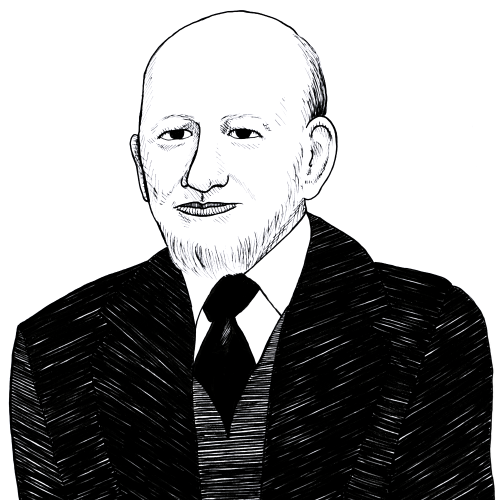Liberty Matters
Lachmann, Unions, and Austrian-Business Cycle Theory

Lachmann's lifetime output was quite modest. As Don Lavoie noted, there were big messages contained in small packages. Bill Tulloh's post "Some Final Thoughts on Secondary Institutions" is an illustration of how big the message can be. Fascinating stuff, with tremendous relevance to our modern information society, that makes me wish for more. I'm hoping that Bill will provide it somewhere with numerous illustrative examples.
I am glad Mario Rizzo mentioned monetary policy and intertemporal equilibrium. At least since Mises, the Austrians have always been very preoccupied with intertemporal disequilibrium, especially the kind that gives rise to cycles. It is from this preoccupation that much of their investigations into the role of knowledge in market processes comes from. Hayek's "Economics and Knowledge" arises directly out of questions about expectations in an uncertain world, the kind of world that Keynes suggested rendered the market economy vulnerable and prone to severe collapse.
As Mario points out, on the matter of monetary policy, Lachmann supported enlightened central banking (my words). The little he said about free banking (competition in money supply) was critical and dismissive. Perhaps even more interesting, like Hayek he was focused on the power of labor unions. This is not surprising given the development in Britain of trade-union power – both he and Hayek were still much focused on Britain at that time. Lachmann believed that because of the unions' power, in the world in which we now live prices can go up but not down. He endorsed John Hicks's observation that we were in effect on a "labor-standard." The negotiated wage determined the level of the supply of money. So he was convinced that money was determined "endogenously" and, obviously, for that reason not very impressed by monetarism when it arrived.
It is clear, and it became clear during his lifetime, that he was wrong about this. The power of unions has pretty much decreased monotonically since mid-20th century (for reasons that would be interesting to discuss but are beyond our scope here), and many prices certainly do fall, some of them a lot. Even wages fall as people become unemployed and accept lower-paying jobs.
Lachmann's own framework is useful in analyzing this. Again from Hicks, he uses the important distinction between fix-price and flex-price situations. A demand-side shock can produce either and both in varying degrees over time. The stability of the system depends on there being enough flex-price response. A rigid fix-price situation is the one Keynes assumed. In his world all responses were in quantities of goods and employment. Lachmann realized that the ability of the system to adjust depended on there being enough price responsiveness so that Keynes's income-employment multiplier would be muted. He was interested always to examine every situation for the mix of fix- and flex-price.
Lachmann never bought into the claims of the Austrian business-cycle theory (ABCT). He was steadfastly, if quietly, critical of them. The most obvious case is his brief and only interaction with Mises in the pages of Economica. His article "The Role of Expectations in Economics as a Social Science" (1943) was taken by Mises to be directed at him, specifically at the ABCT for assuming static expectations. But of course that criticism would apply equally to Hayek's version of the theory. In any case, Mises felt compelled to respond to the criticism in a note in Economica. (1943)
Right at the very end of "Role" Lachmann tackles the nature of expectations within the ABCT. He points out, as was was pointed out many times after him, that for a business cycle to occur as a result of the credit expansion which reduces the interest rate, expectations must be elastic. In other words, investors must expect that the new interest rate will endure sufficiently long for them to want to change their investment decisions. By contrast, if investors know the ABCT and believe it, they will expect the interest rate to be unsustainably low and will not alter their investments in the manner suggested by the theory. It is clear from his words that Lachmann is skeptical about the ABCT.
In his response Mises says that Lachmann's article "deserves careful attention" and that he fully agrees with him. (Mises 1943, 251) He goes on to say:
But I want to point out that I did not fail to state the fact that my explanation of the trade cycle is based on such an assumption [of elastic expectations].… The economic consequences of credit expansion are due to the fact that it distorts one of the terms of the speculators and investors calculation, namely interest rates. He who does not see through this, falls victim to an illusion; his plans turn out wrong because they were based on falsified data. Nothing but a perfect familiarity with economic theory and the careful scrutiny of current monetary and credit phenomena can save a man from being deceived and lured into malinvestments. [252]
These words by Mises are an important concession to Lachmann's skepticism and probably deserve more attention than they have received.
***
Thank you to Liberty Matters, to those unnamed behind the scenes, and to my participating colleagues. I have enjoyed it and hope it has proved interesting and useful to our readers.
Copyright and Fair Use Statement
“Liberty Matters” is the copyright of Liberty Fund, Inc. This material is put on line to further the educational goals of Liberty Fund, Inc. These essays and responses may be quoted and otherwise used under “fair use” provisions for educational and academic purposes. To reprint these essays in course booklets requires the prior permission of Liberty Fund, Inc. Please contact oll@libertyfund.org if you have any questions.